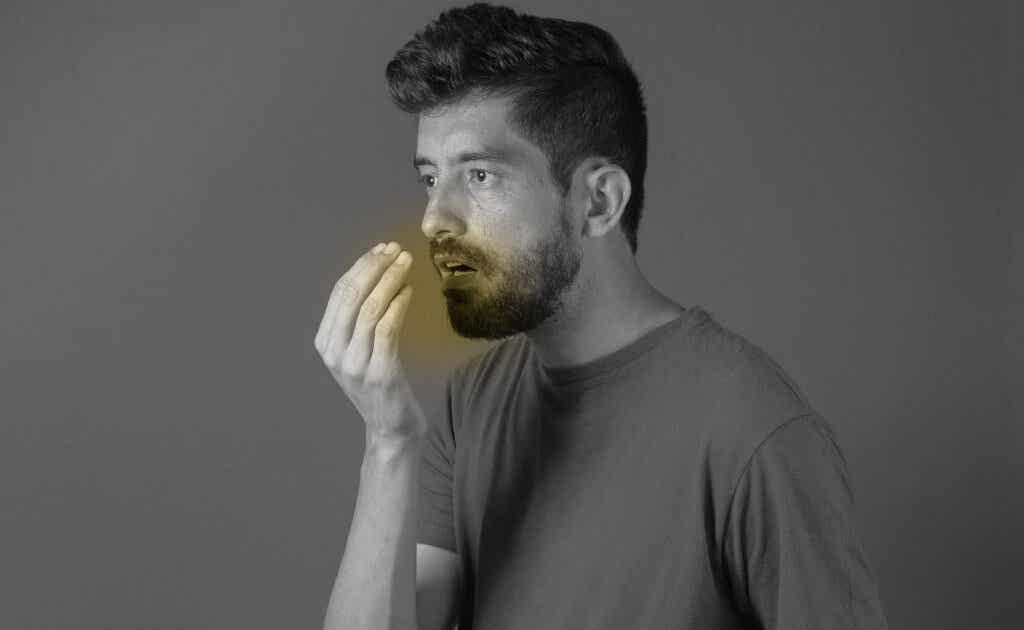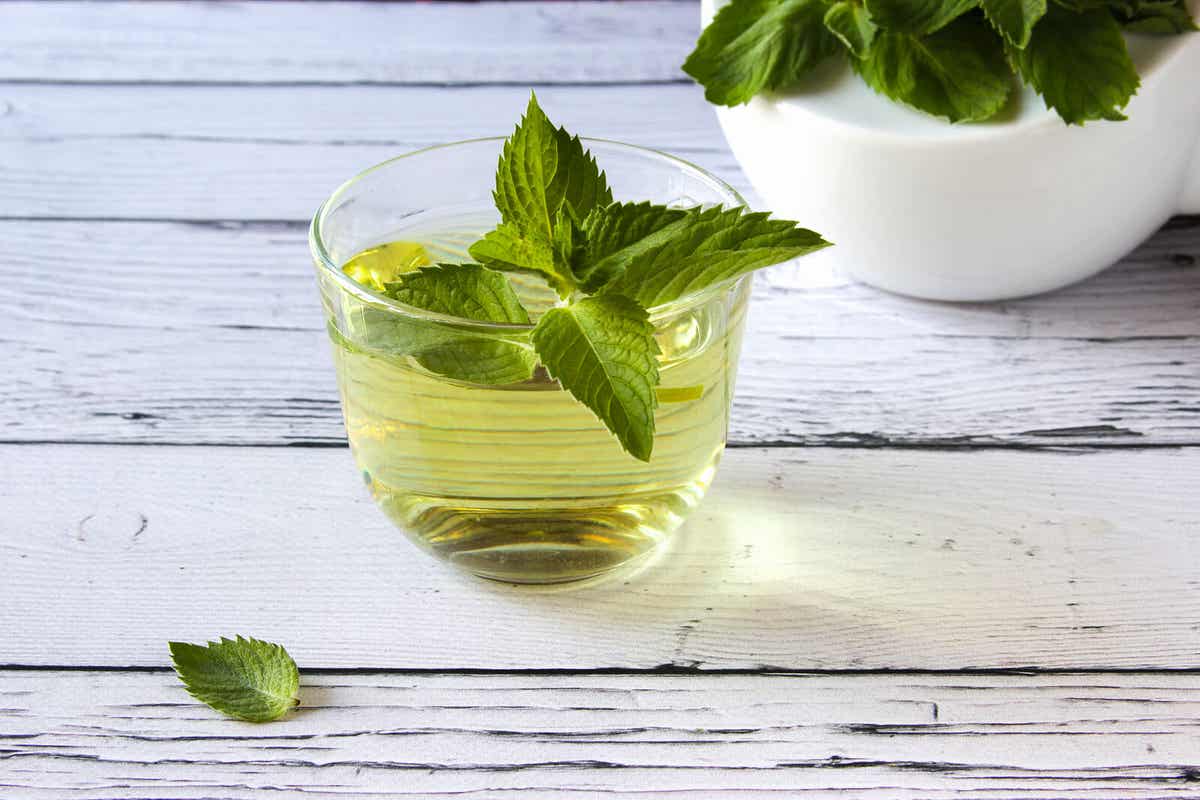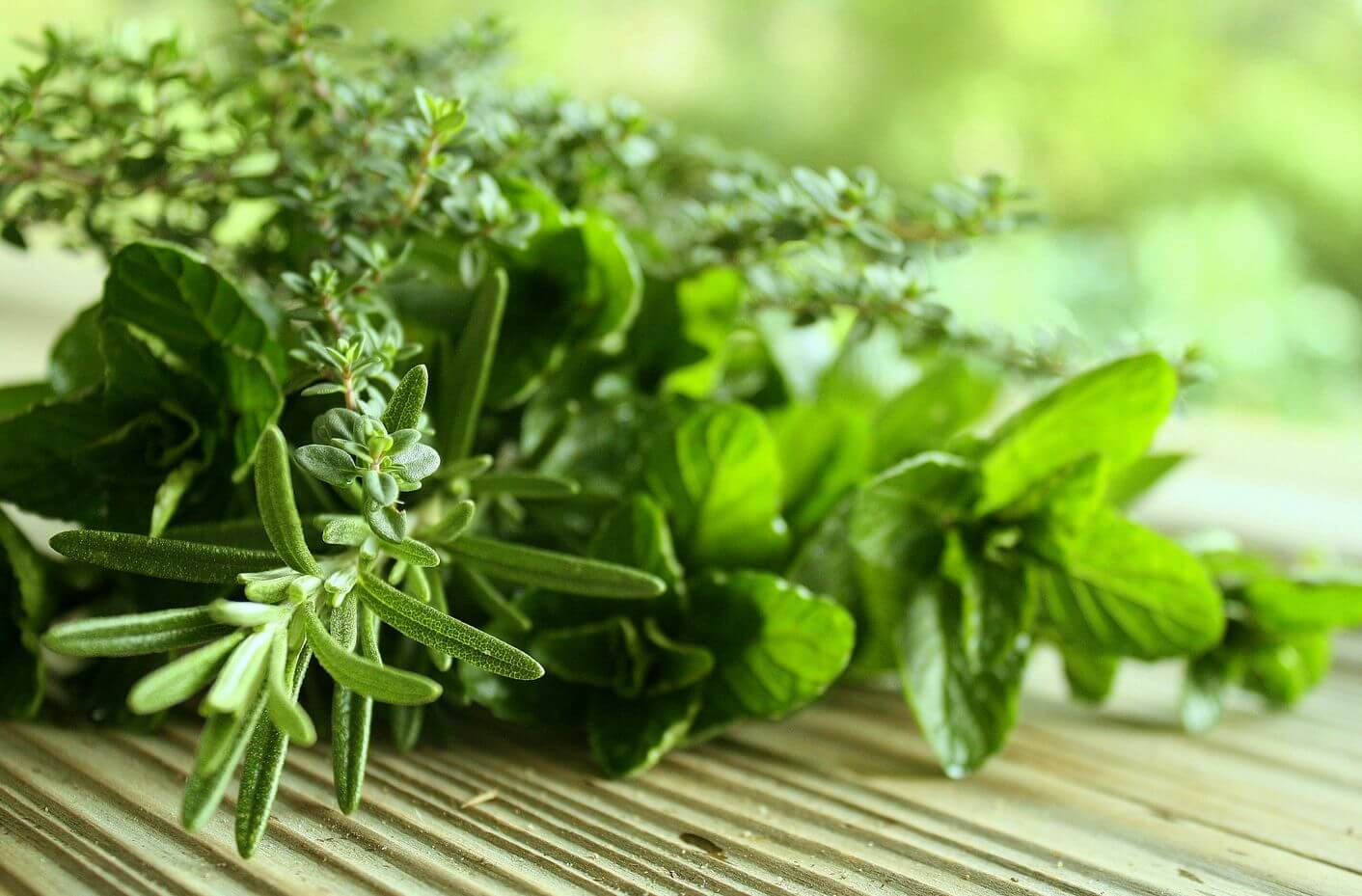5 Genius Tricks To Combat Bad Breath


Written and verified by the pedagogue in physical education and nutritionist Elisa Morales Lupayante
You’ve probably had bad breath before. For example, after eating a meal with a lot of garlic or onion or after going several hours without brushing your teeth. Do you want to know some genius tricks to combat bad breath?
As bad breath doesn’t always have the same cause, it’s important for us to delve deeper in it.
The causes of bad breath

Bad breath or halitosis is a fairly common discomfort. For this reason, anyone can notice it at any point in their life. According to data provided by a recent study, “It’s a common condition in the general population. It’s estimated that it affects 25% to 30% of the world population”.
Having bad breath is common when you wake up, as saliva has been resting for a long time, which favors the proliferation of bacteria and other microorganisms. Brushing your teeth and drinking water usually resolves it. However, when it persists throughout the day, even after brushing, then we speak of halitosis.
Halitosis is related to the decomposition of food remains, saliva or blood, which produce volatile substances, such as sulfur compounds. Although people usually associate it with poor hygiene, many other causes can lead to this disorder. Discover them below:
- Consumption of tobacco and alcohol.
- Age. People over 50 are more likely to suffer from halitosis.
- Teeth, tongue, or throat diseases, such as gingivitis.
- Stomach problems. Digestive disorders such as dyspepsia and gastroesophageal reflux or hiatal hernia can lead to bad breath.
- Chronic diseases, such as diabetes, chronic gastritis, and chronic periodontal disease.
- Side effects of drugs. Antineoplastics are drugs that promote oral yeast infection, bleeding gums, and oral ulcers.
- Dehydration. If you don’t drink enough water, you don’t produce enough saliva. This increases the amount of microorganisms in the mouth and can therefore cause bad breath.
- Cancer in the respiratory tract or digestive tract.
To relieve this condition, it’s important to attack the root cause. Thus, we recommend you go see a specialist who can accurately diagnose you and rule out a serious condition.
You should also read: 4 Treatments for the Most Common Mouth Problems
5 ideal tricks to combat bad breath
If your doctor stated that it’s a only a minor problem, don’t doubt trying the following tricks to put an end to your halitosis.
1. Pay attention to your oral hygiene
The first of the tricks to combat bad breath is to pay attention to your oral hygiene, specifically the number of times you brush your teeth and the products you use. Have you tried using a mouthwash regularly? How about changing your toothpaste? Do you carry a toiletry bag with a toothbrush and toothpaste in your bag?
Your daily oral cleaning routine is essential. Brush your teeth at least three times a day, including your teeth, gums, and tongue. Use dental floss twice a day to remove food particles and also mouthwash to disinfect your mouth. We recommend using a soft bristle brush with a tongue scraper. Don’t forget to visit your dentist at least once every six months.
2. Watch your diet
Particularly, there are foods that cause bad breath. Especially those high in fat and sugar, meats, spices, or dairy products. During digestion, aromatic molecules that can be exhaled through the digestive tract and the skin are released. To avoid this, we recommend including fruits and vegetables rich in vitamins and minerals in your diet and drinking infusions that fight bad breath, such as peppermint, green, or black tea.

3. Avoid certain substances
Another trick to combat bad breath is to avoid the consumption of certain substances, such as coffee, alcohol, and tobacco, as well as foods with intense flavors or smells, such as onion and garlic, as they cause halitosis. In addition, you also exude its smell through sweat.
4. Take care of your digestive system
A bad digestive process and diseases such as gastritis, constipation, or colitis can cause bad breath. If you eat enough fiber and drink more water, you’ll improve your digestion.
Read also: How Diabetes Affects The Digestive System
5. Take advantage of some herbs

- Clove-scented tea.
- Rosemary, parsley, basil, and thyme help eliminate bad breath.
- Gargling with lemon and salt disinfects and moisturizes the area.
- Fennel helps keep the tongue and gums healthy.
- Sage essential oils contribute to disinfection of the oral cavity.
Did you know these tricks to combat bad breath?
As you may have seen, mouth odor can be the result of poor hygiene, excessive bacterial growth in the mouth, dehydration, and mouth infections. Due to this, it’s important to brush your teeth well every day and use dental floss and mouthwash regularly. In addition, you should take care of your diet and digestive health.
Remember that, although you can try some natural remedies such as herbs and essential oils, it’s best to see a dentist and listen to them.
All cited sources were thoroughly reviewed by our team to ensure their quality, reliability, currency, and validity. The bibliography of this article was considered reliable and of academic or scientific accuracy.
- Aylıkcı BU, Colak H. Halitosis: From diagnosis to management. J Nat Sci Biol Med. 2013;4(1):14–23. doi:10.4103/0976-9668.107255
- Porter SR, Scully C. Oral malodour (halitosis). BMJ. 2006;333(7569):632–635. doi:10.1136/bmj.38954.631968.AE
- Kapoor U, Sharma G, Juneja M, Nagpal A. Halitosis: Current concepts on etiology, diagnosis and management. Eur J Dent. 2016;10(2):292–300. doi:10.4103/1305-7456.178294
This text is provided for informational purposes only and does not replace consultation with a professional. If in doubt, consult your specialist.








